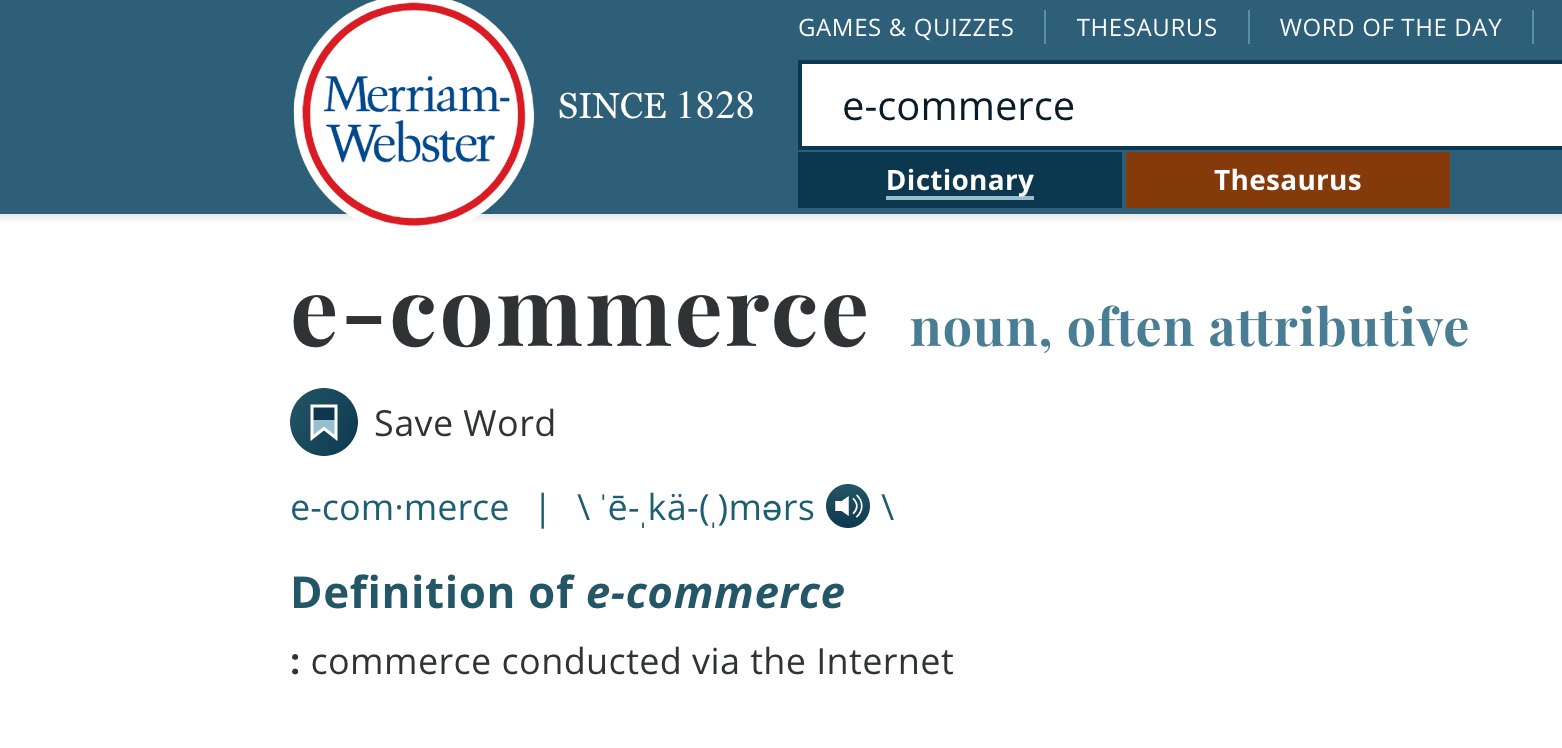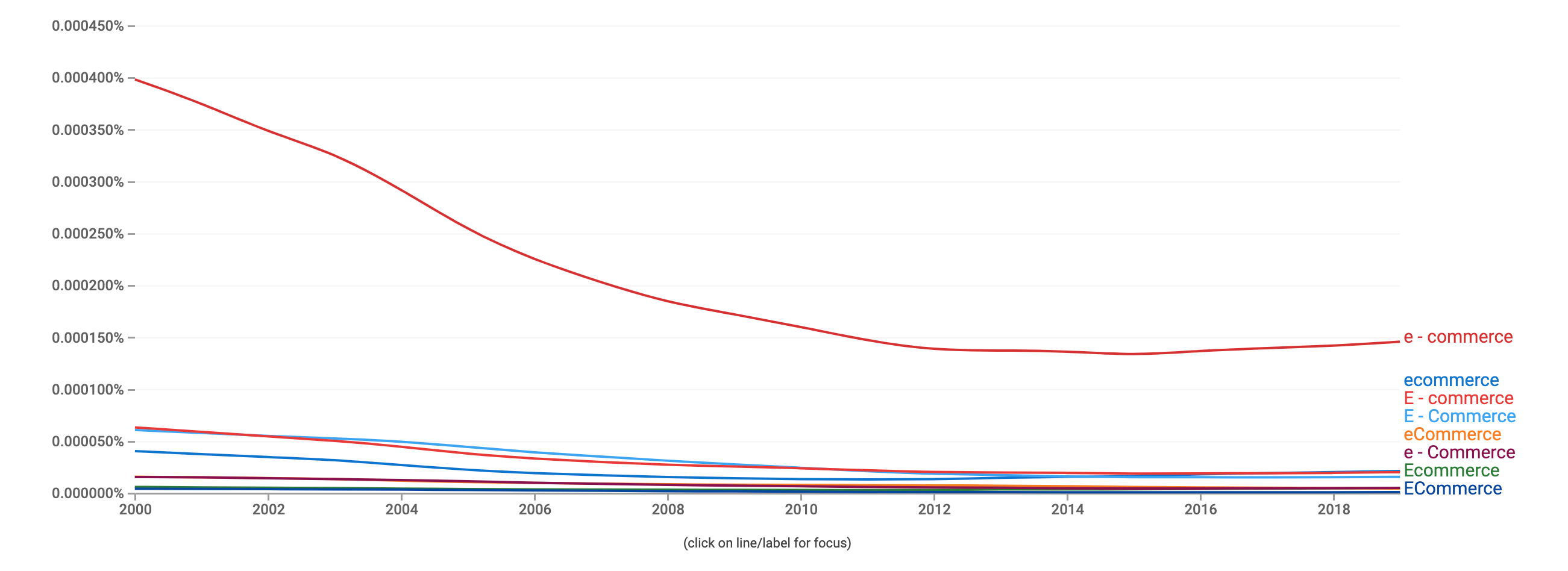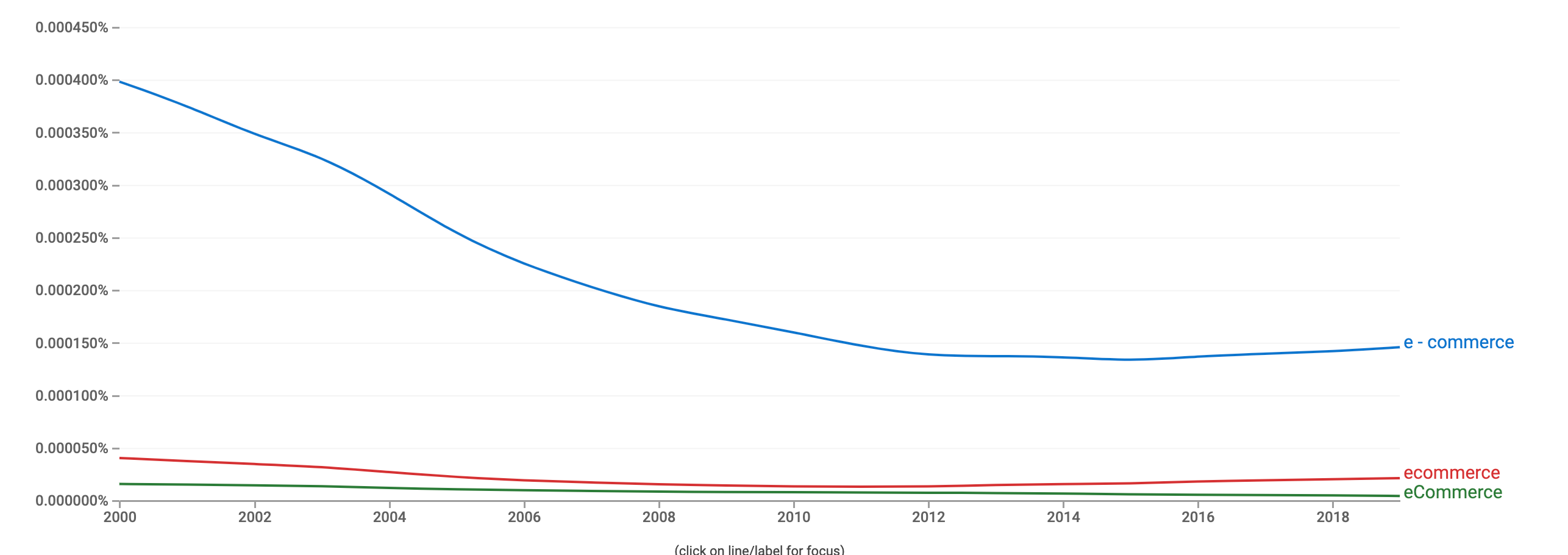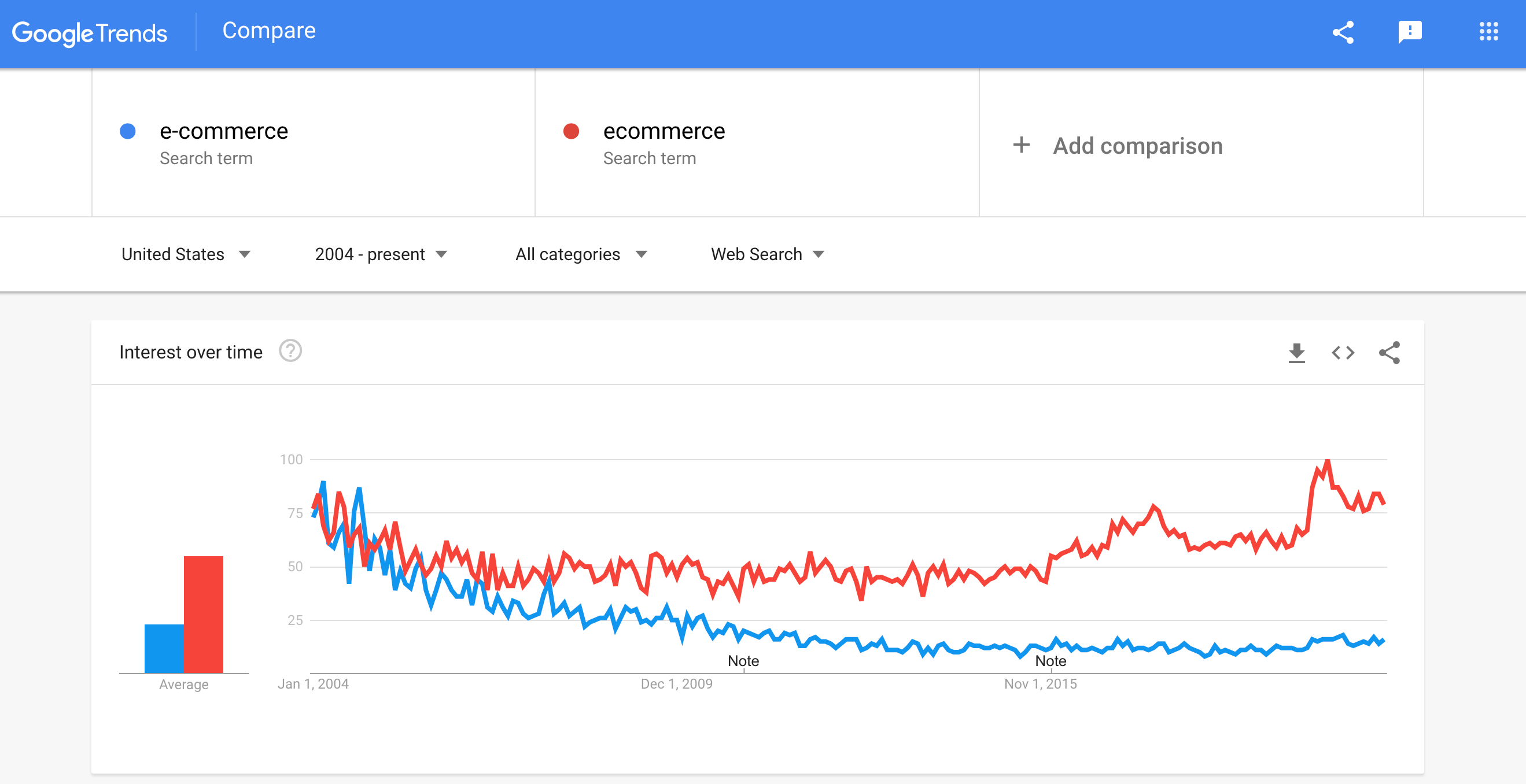During the pandemic, ecommerce purchases became a regular investment for the everyday consumer. And now that more people have discovered the convenience of online shopping, much of the new ecommerce market is here to stay in the post-pandemic world.
But as more people shop online and the discussion around ecommerce grows, a lot of industry players are running into the same problem: there are too many damn ways to spell ecommerce.
And we’re willing to bet that, as someone in the industry, you want to know how to spell ecommerce so that you don’t make a fool of yourself.
So, which spelling is correct?
It’s a question that, as ecommerce experts, we had to answer for ourselves, but before we get into the answer, it helps to understand the problem.
Why So Many Spellings?
Ecommerce has been around for a decent amount of time, but in the grand scheme of things, it’s recent. At the same time, it’s internet bound, and the internet is a place where anyone can write anything without thinking twice about spelling.
It’s also an abbreviation for electronic commerce, making it easy for people to take on many ways of abbreviating the word.
For these reasons, we end up with several spellings, including:
- ecommerce
- e-commerce
- eCommerce
- Ecommerce
- e-Commerce
- E-commerce
- ECommerce
Each variation comes down to a question of “to hyphen or not to hyphen” and “to capitalize or not to capitalize” (and if so, the E, C or both)?
The hyphen makes logical sense because it indicates that the abbreviation is a combination of two words. We use it for similar terms like e-book and e-reader.
On the other hand, people used to spell the word email (electronic mail) with a hyphen before dropping it. It, too, spent time in spelling limbo until the majority switched from e-mail to email and spelling guides adapted.
What Dictionaries and Style Guides Say
Considering the many variations of the word, it’s surprising that all literature guidelines are in agreement.
The Merriam Webster, Cambridge and Oxford dictionaries all use the spelling e-commerce. Online, they even autocorrect your entry if you spell it another way.

As for style guides, the Associated Press Style Guide (AP Style) and the Chicago Manual of Style also dictate that the correct spelling is e-commerce.
Per the AP Stylebook:
“AP uses hyphenated e- for generic terms such as e-commerce and e-strategies. One exception: email (no hyphen, which reflects majority of usage).”
A Look at Google Ngram and Google Trends
The Google Ngram Viewer and Google Trends are valuable tools for evaluating the everyday and academic use of a term.
Google Trends analyzes the popularity of a search query in Google Search over time. Google Ngram is a search engine that evaluates a word’s frequency of use in printed sources, like books, between 1500 and 2019.
When comparing the most common spellings from the two tools, we found some interesting results.

Looking at the many spellings in the Ngram viewer, we found that the results heavily favored e-commerce, though it had been on a downward trend. Second in popularity was ecommerce, without the hyphen. Though far behind, ecommerce did show an upward trend over the last few years.
Since most of the alternate capitalization spellings are due to instances where the word is in a title or starts a sentence, we decided to clear up the chart to better compare e-commerce, ecommerce and eCommerce.

The variant eCommerce is a special capitalization case because people use it in the middle of sentences. We weren’t partial to this spelling considering the abbreviation stands for electronic commerce, in which case it doesn’t make sense to capitalize commerce as it is in eCommerce. It also doesn’t follow any standard practice for similar words like e-book or email.
Perhaps, for this reason, eCommerce came in third place, and its use has been declining over the last decade.
Moving on to Google Trends to compare e-commerce and ecommerce, we got different results.

Note: We didn’t include eCommerce in our Trends search because Google doesn’t account for capitalization and, therefore, wouldn’t distinguish between ecommerce and eCommerce. It was also the least common of the 3 in Ngram and showing a long-term decline.
The Trends chart shows that e-commerce and ecommerce experienced similar search rates back in 2004, but since then, ecommerce has become the favorite.
To double-check these results, we turned to Ahrefs – a keyword research tool. It confirmed the Trends results, showing that ecommerce has a search volume of 96k while e-commerce has a search volume of 36k.

If you’re wondering what to make of the fact that Ngram favors the hyphen and Trends doesn’t, the difference makes sense.
Ngram studies printed works that would abide by dictionary and style guide rules. And if you recall, both of those say e-commerce is correct.
Trends, on the other hand, shows what the everyday person searches for on Google. They aren’t obligated to follow any style guide. They also might be typing in a hurry and uninterested in adding the hyphen.
How Industry Players Spell Ecommerce
Of course, we aren’t the only industry experts (or at least players) out there. But unlike the other categories explored, the preferred spelling was all over the place among ecommerce players.
While BigCommerce and Shopify use ecommerce, WordPress uses eCommerce. These are three of the few players that use one spelling consistently.
Ecommerce optimization tool Crazy Egg uses e-commerce under solutions, ecommerce in blogs and eCommerce to title their blog archive.
Facebook uses a combination of ecommerce and eCommerce.
Meanwhile, Google uses ecommerce in Google Ads Help and e-commerce on Google for Small Businesses.
So, What Is the Correct Spelling?
When it comes down to it, you have several options for spelling ecommerce because there is no definite answer. Unless you work in journalism and you’re required to follow AP Style, no one can really say you’re wrong.
Still, the two most common and acceptable spellings are ecommerce and e-commerce. If you’re unsure which to use, think about what matters more to you.
The variant e-commerce is grammatically correct according to dictionaries, styling guides and publishers. It’s the ideal choice if you’re working in academia or journalism.
The other, ecommerce, is what everyday individuals predominately use, and it’s where the term will likely end up once style guides conform to the will of the people. It’s what happened to the word email, but when it will happen is uncertain.
How to Capitalize Ecommerce and E-Commerce
When writing ecommerce or e-commerce, only use capital letters when they are in a title or at the beginning of a sentence.
Capitalize the E and C the way you would if you were writing out the words “electronic commerce.” At the beginning of a sentence, they appear as Ecommerce and E-commerce (Electronic commerce). In a title, e-commerce becomes E-Commerce (Electronic Commerce).
The one exception is that in a title, ecommerce remains Ecommerce, so you’ll never use ECommerce. The C isn’t capitalized here because the hyphen isn’t present to distinguish two separate words, which is what indicates the need to capitalize both.

Choose Your Strategy
Remember how Google, Facebook and Crazy Egg each use multiple spelling variations? Well, they aren’t the only ones to play that game. There’s no way to know without asking, but there are two possible reasons for this.
One is that they didn’t have a copywriter who was paying attention to consistency. The other is that they did it intentionally for SEO purposes.
You should choose everything, down to your spelling of the word ecommerce, with a strategy in mind. It’s up to you to decide if you prefer journalistic accuracy or getting ahead of the curve to meet the people – or if you prefer consistency or keyword variety. If you choose to use multiple spellings, be sure to limit yourself and don’t use more than one on one page.


